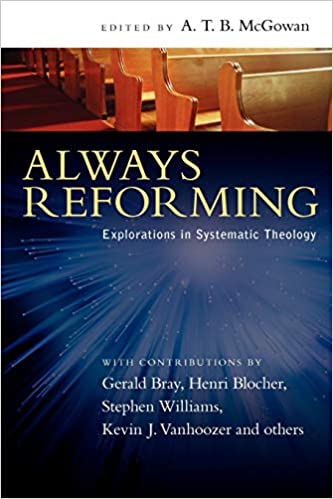A Brief Chapter Summary from Books At a Glance
By Steve West
John Calvin has a rich treatment of the doctrine of union with Christ. From the nineteenth-century through the twentieth, however, too often Reformed theologians looked at the doctrine of union with the narrow focus of its legal or representative nature. (John Murray is an exception in this regard.) The expression “union with Christ” is not found in Scripture, but it is an accurate description of a central theological reality. We were created to live in fellowship with God, and as sinners, this can only occur through union with the risen Christ.
Union with Christ is the climactic realization of the covenantal bond between God and his people. Paul’s phrase “in Christ” is a major source for the doctrine. Our union with Christ is a profound mystery, the truth of which has been revealed to us but goes beyond our finite comprehension. The union with Christ and his people is analogous to the union between Father and Son. Union is spiritual because of the Holy Spirit’s role and presence. In his glorification, Christ has become a life-giving Spirit, so that the life and work of the Son and the Spirit are inseparable. We are in Christ, and he is in us.
Murray insists that union with Christ is central to soteriology since it is so encompassing. His treatment of union within the ordo salutis was ambiguous and changed over time. How does Christ’s work for us benefit us here and now? How is salvation applied and how do we appropriate it? Very importantly, Calvin observed that as long as Christ is outside of us, his work cannot benefit us. The historical salvation that Christ wrought is necessary, but it needs to be received by faith. The Holy Spirit gives us saving faith, so he is the bond that unites us with Christ.
[To continue reading this summary, please see below....]The remainder of this article is premium content. Become a member to continue reading.
Already have an account? Sign In
Buy the books

ALWAYS REFORMING: EXPLORATIONS IN SYSTEMATIC THEOLOGY, edited by A. T. B. McGowan